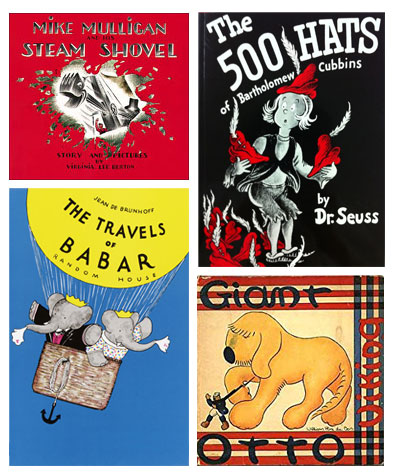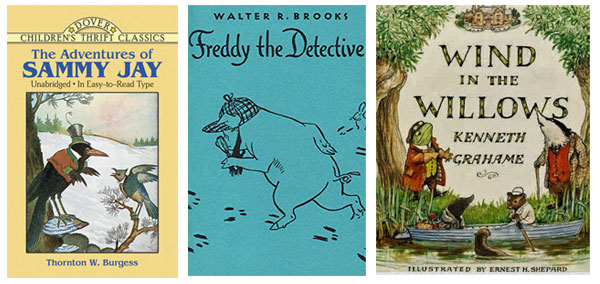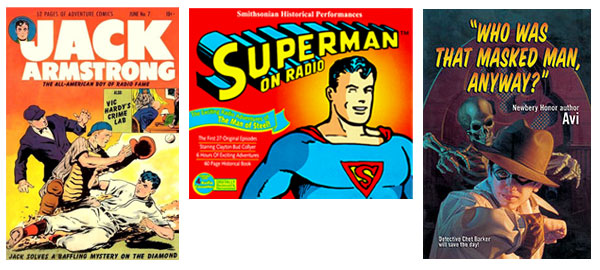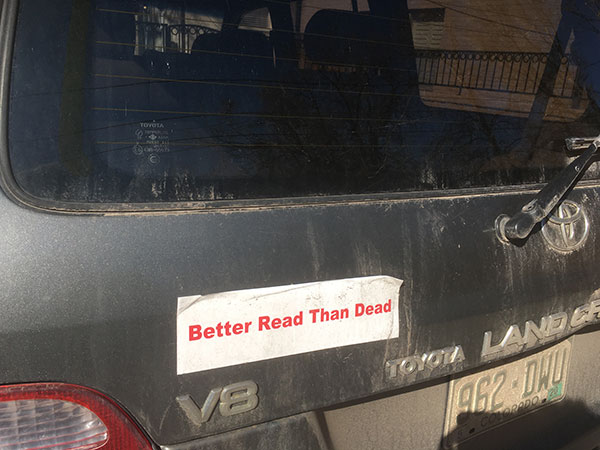Such is the narcissism of youth that, sadly, one often learns about some important things about a parent only when they have passed on. Such was the case of my mother. Even as I began to publish, she never told me that she had wanted to be a picture book writer. I only learned of that when, after she died, I came upon some manuscripts she had written. My father told me that she had never submitted any of her work to a publisher. Too shy.
 But that explained (in retrospect) her great interest in picture books, and why, in the nineteen forties (my youth) I had many of the classic books of that time. Thus I have quite vivid memories of such books as Burton’s Mike Mulligan and His Steam Shovel, Seuss’s The 500 Hats of Bartholomew Cubbins. Oh, yes, Babar. I actually still have an early copy of Giant Otto by William Pené du Bois. I can think of more.
But that explained (in retrospect) her great interest in picture books, and why, in the nineteen forties (my youth) I had many of the classic books of that time. Thus I have quite vivid memories of such books as Burton’s Mike Mulligan and His Steam Shovel, Seuss’s The 500 Hats of Bartholomew Cubbins. Oh, yes, Babar. I actually still have an early copy of Giant Otto by William Pené du Bois. I can think of more.
I don’t know if such books influenced me in any way, except I know my siblings and I were read to every night by my mother. No coincidence: My twin sister is also a writer.
In some fashion — I’m not sure how old I was — I discovered the animal stories of Thornton W. Burgess. These anthropomorphic stories were originally serialized in newspapers, and then published as book in which form I read and collected them. (There was a used book store in my neighborhood and I could buy them for twenty-five cents.) I am not sure why as a city boy I loved these tales. Perhaps it was because I was a city boy. But as the first chapter books I read on my own, I know that there are echoes of them in my Poppy books.
But I have no doubt the Burgess books enabled me to move on to the more sophisticated Freddy the Pig books, which I devoured. I draw a direct line from those titles to The Wind in the Willows, which made a deep impression on me. Now I was reading great writing. From time to time, I still re-read that book. It remains utterly wonderful.

I also read much of what were called boy’s books, the Hardy Boys, Tom Swift, and the like.
At some point (I’m not sure when) I discovered Robert Louis Stevenson’s Treasure Island. When I began to write historical novels, that book is the inspiration and model for much of my work.
Then there was the radio. I was an avid listener to radio plays, in particular the kid’s shows, like Jack Armstrong, and Superman (how thrilling when Clark Kent’s alto voice changed to Superman’s bass tones), as well as The Lone Ranger. To get a sense of how much radio influenced me, read my Who Was That Masked Man Anyway? It’s an homage to my radio listening days.

But as I began (as a high school student) to think about writing, it was not novels that inspired me, but stage plays. I was living in New York City at a time when the theatre scene was abundant and affordable. I recall going to as many as two productions a day, a matinée and then an evening performance. I also would go to a theatre and wait for the first intermission. In those days of pervasive cigarette smoking, the audience would drift out onto the street to smoke. I would mingle with them and drift (like the smoke) inside, becoming adept at grabbing an unused seat.
In a diary I kept during my senior high school year there are long lists of the plays I am reading. And somewhere in 1955 there is a line in that diary, which reads: “I’ve made up my mind. I’m going into the theatre.” What I meant was writing for the theatre.
Did all this theatre influence my later writing? Dick Jackson, my most important editor (himself a lover of the theatre), once said to me (of my novels) “Avi, you’ve never stopped writing plays.”
Because of the heavy criticism I received about my writing, in college I avoided (to the best of my ability) English classes. Not that I didn’t read. I was a voracious reader, but followed no pattern. I simply read whatever caught and held my attention. Reading taught me to write.
By the same token, by not taking writing classes (or having a mentor) I never developed a singular “voice,” or style, which explains, I think why my writing is so varied — a reflection of my reading.
These days I still read a lot for both research and pleasure. For the pleasure reading, it’s not critical reading, but simply to be immersed. It’s still random.
How does all this add up? When I moved from my Denver home to my mountain home I had something like five thousand books on seriously sagging (homemade) shelves. For the most part I gave them away to used book stores, with the hope they would have more hands to turn the pages.
I hold many images of reading in my head, but one beyond all else. It is a photograph of a war-torn boy. Paraplegic. Blind. He is bending over a braille book. He is reading the text with the tip of his tongue.
On my car is a bumper sticker I composed: Better read than dead.


I owned a bookstore In Lakewood CO for about 15 years. I was fortunate to have Avi visit
my store several times. I also assisted several school librarians when he was to visit their
schools. It was interesting to read this article.